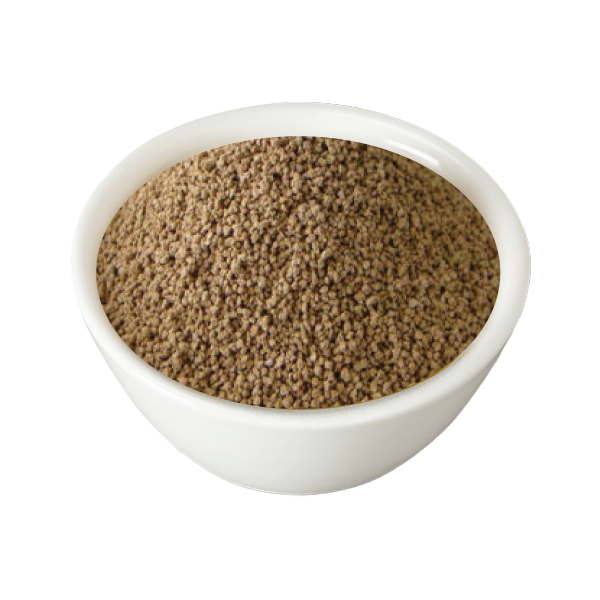L-Lysine monohydrochloride is a high quality, granular product specifically designed for the feed industry. Produced from advanced technology, this product is composed of 100% isometrically pure L-Lysine, which translates into 100% bio-availability for animals.
L-Lysine is produced by the fermentation method. By cultivating a special microbial strain developed for the production of each amino acid, in a medium containing glucose or sugar and other nutrients (ammonium sulphate, etc., as nitrogen sources, minerals and vitamins), an amino acid can be efficiently produced. The amino acid is extracted from the fermentation broth with ion exchange resin treatment, etc. The fermentation yield of the strain is a key factor in the productivity of amino acids, which has been steadily improved with the introduction of new biotechnology.
With the commercialization of L-Lysine, nutritionists have more flexibility with utilizing nontraditional feed ingredients, which may improve profitability without loss of feed quality. As a result, the lysine requirement of livestock can be met in a cost-effective manner by reducing the amount of costly, high-protein ingredients that were once fed.
Chemical Formula
C6H14N2O2
Typical Analysis
| Parameters | Values |
| L-Lysine content | 78.8% (Min) |
| Molecular Weight | 182.65 |
| Appearance | Yellowish-white, crystalline powder |
| Content( L-Lysine basis) | �78.8% (as is basis); 80.0% (dry matter basis) |
| Dry Matter | 98.5% (minimum) |
| Bulk Density | �0.55 to 0.65 grams/cm3 |
| Total Nitrogen | 15.12% (on an as is basis) |
| Chloride | 19.1% (on an as is basis); 19.4% (dry matter basis) |
| Crude protein (%/16 g-N1) | 94.40% (on an as is basis) |
Origin of Goods
Singapore, China

